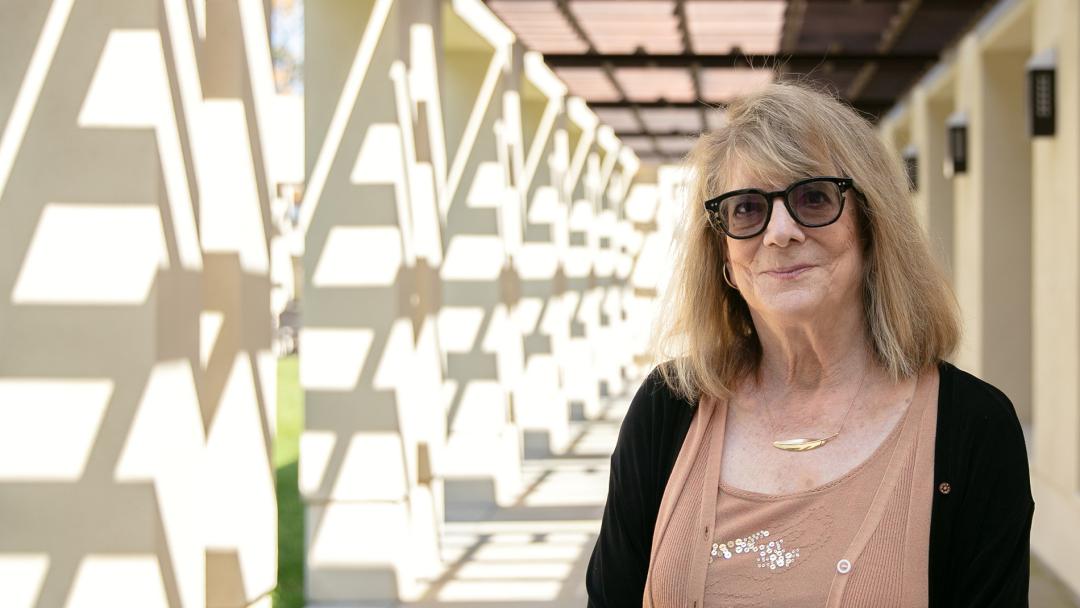
Distinguished Professor Loftus and her study on AI recognized
Elizabeth F. Loftus, distinguished professor of psychological science and criminology, law & society, has been named a Highly Ranked Scholar by ScholarGPS and a study she co-authored has won a 2025 Best Paper Award from Computer Human Interaction (CHI).
Star Status
Loftus is among the top 0.05% of scholars worldwide, garnering her the Highly Ranked designation. This prestigious acknowledgment comes as a result of her exceptional contributions to the field of psychology, particularly cognitive psychology.
ScholarGPS, a California-based company using advanced data science techniques, ranked Loftus's work based on her publication record, impact, and overall quality of scholarly contributions. The rankings, which cover more than 30 million scholars across 200 countries, highlight Loftus's remarkable achievements in several categories.
Most notably, Loftus has been ranked No. 1 globally in the specialty of cognitive psychology for her lifetime achievements. She also ranks No. 97 in the broader discipline of psychology.
The rankings are based on ScholarGPS's comprehensive analysis of more than 200 million publications and 3 billion citations, providing an objective measure of scholarly impact and productivity.
Loftus's groundbreaking work in cognitive psychology, particularly in the areas of human memory and eyewitness testimony, has significantly influenced academic research and real-world applications in legal settings.
The recognition not only celebrates Loftus's individual achievements but also highlights the world-class research conducted at UC Irvine.
“The School of Social Ecology congratulates Dr. Loftus on this well-deserved honor, which further cements her status as a leading figure in psychological research,” says Dean Jon Gould.
“I am honored to learn that my research program has had such an impact,” Loftus says. “But, honestly, I'm also shocked by the cognitive psychology ranking since I can think of many cognitive psychologists whom I would have predicted would have been the one to have received that ranking!”
AI Distortion
The award-winning paper, “Synthetic Human Memories: AI-Edited Images and Videos Can Implant False Memories and Distort Recollection,” highlights the potential risks and opportunities associated with AI-altered media. Published in arXiv, the study reveals that AI-edited images and videos can significantly distort human memory, leading to the formation of false recollections.
Key findings from the research include:
- Participants exposed to AI-edited images were more likely to form false memories compared to those who viewed unedited images.
- AI-generated videos based on AI-edited images had the strongest effect, increasing false recollections by 2.05 times compared to the control group.
- Confidence in false memories was highest for participants who viewed AI-generated videos of AI-edited images, at 1.19 times higher than the control group.
The study — co-authored by Loftus; Pat Pataranutaporn, Samantha W. T. Chan and Pattie Maes of MIT; and Chayapatr Archiwaranguprok of University of the Thai Chamber of Commerce — involved 200 participants. It demonstrates the powerful influence of AI-altered media on human cognition. While the findings raise concerns about potential misuse in legal, political and social contexts, the researchers note possible therapeutic applications, such as reframing traumatic memories.
“Our research underscores the need for increased awareness and regulation of AI-edited media,” Loftus says. “As these technologies become more integrated into our daily lives, it's crucial to understand their impact on human memory and perception."
The study calls for interdisciplinary collaboration to address the challenges posed by AI's influence on human cognition and emphasizes the importance of developing interventions to mitigate the risk of AI-induced false memories.
The Best Paper Award will be announced at the CHI conference in Yokohama, Japan later this month.
— Mimi Ko Cruz
Related
Reimagining the justice system
Loftus receives 8th honorary doctorate
Loftus lands lifetime achievement award
American Philosophical Society honors Loftus with Suppes Prize